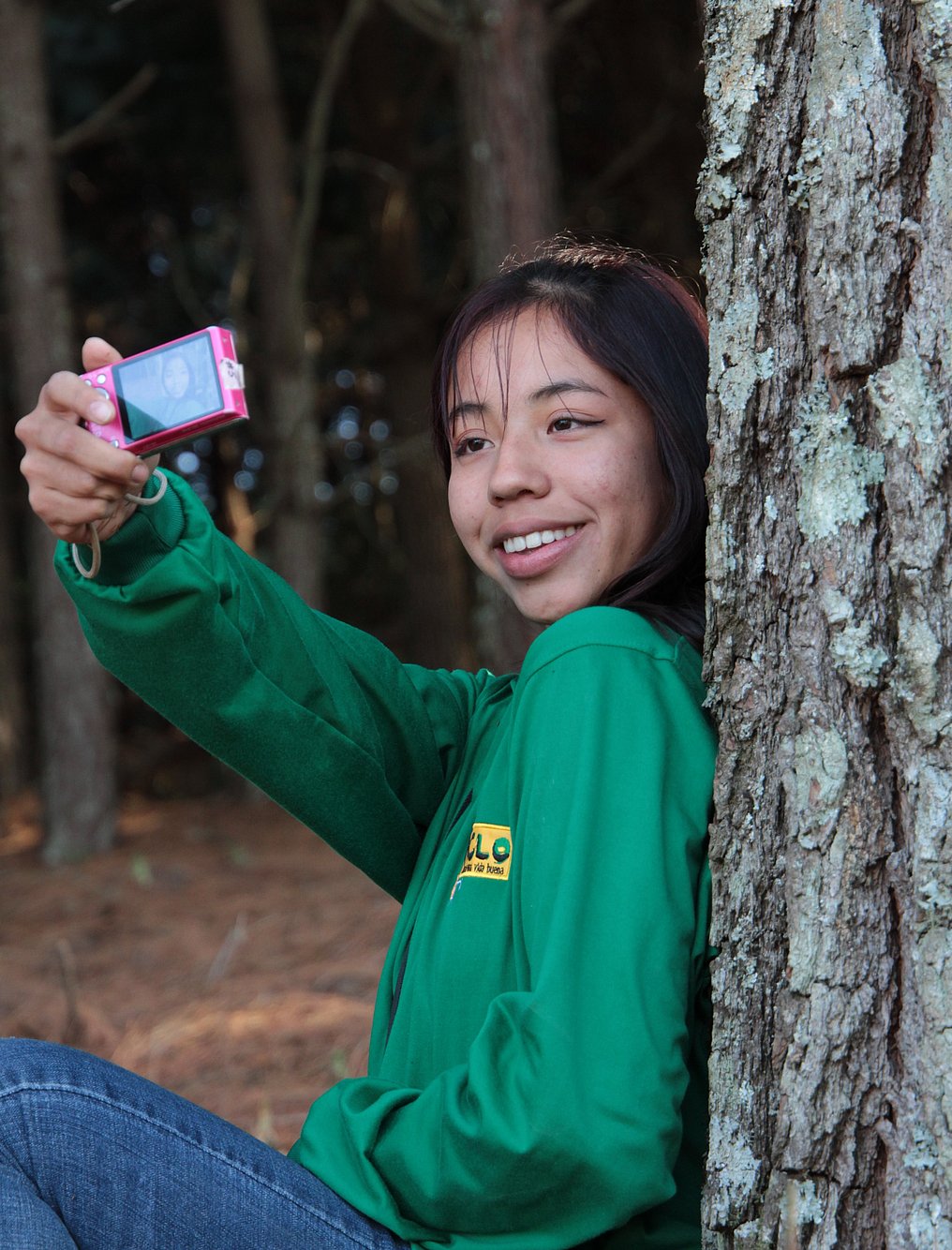Photo Competition "Decolonial Perspectives"
An exciting process and three outstanding winning photographs
Development cooperation requires us to engage critically with colonial continuities — including within development service itself. With this year’s photo competition “Decolonial Perspectives” for (former) development workers, accompanying partners and staff of partner organizations, we created an initiative aimed at approaching this issue in a constructive and reflective way.
Support for designing the competition was quickly found: Stefan Heiß, Head of Communications at EIRENE, has long been engaged in the use of racism-sensitive visual language. In several webinars, he provided valuable impulses on critical image analysis and production — and interest was high.
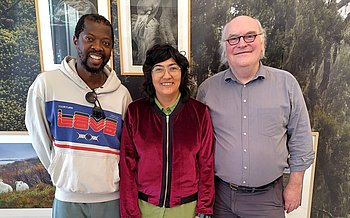
The next step was to assemble an international jury and engage in in-depth discussions with these experts about the procedure and selection criteria. The jury consisted of Bolivian documentary photographer Wara Vargas Lara; Cologne-based photographer and gallerist Wolfgang Zurborn; and Berlin- and South Africa-based photographer, filmmaker and performance artist thabo thindi.
During the selection process it became clear that personal, intercultural, professional and power-critical perspectives differ greatly. Reflecting on these differences proved enriching, though at times challenging. The key aim of the competition — to spark reflection on visual language and foster dialogue about it — was achieved, as the jury concluded.
The number of submissions, however, fell short of expectations. The reason, it is assumed, lies in the challenging nature of the call for entries: creating images that reflect “decolonial perspectives” is highly ambitious, and additional requirements — such as the clarification of image rights for all depicted persons — are demanding. We have learned from this. Nevertheless, we received several excellent contributions, from which the jury selected the three winning photographs presented on these pages.
The winning photographs
Kabita Gurung, Nepal 2024
1st Place: “Two Muslim women against gender-based violence in Nepal‘s lowlands”
Kabita Gurung is a project manager in a Civil Peace Service project run by United Mission to Nepal (UMN), a partner organization of Bread for the World.
This photograph was taken during a visit to UMN’s “Ending Domestic Violence through Community Dialogue and Mediation” project in Palhinandan Rural Municipality. It depicts two Muslim women from a self-help group working to end domestic violence. On the right is Ruksar Begam, the group’s leader. During one of the group’s sessions, she assists Hairun Nesha — a survivor of domestic violence — in signing a document.
The photographer describes Nepal as a society still shaped by patriarchal norms, tracing its structures back to the arrival of the so-called “Aryans” (a term commonly used in South Asia instead of “Indo-Europeans”) and the caste system they introduced. British colonial rule, she adds, further entrenched these forms of discrimination.
Ruksar Begam has faced numerous challenges throughout her life — including limited access to education and her husband’s resistance to her community engagement. Because of her active involvement in the group, she was selected to participate in training in psychosocial counselling and was later elected by the members as a “Peace Ambassador”. She now shares her expertise within the self-help group.
The jury highlighted the visible bond between the two women. The image, they noted, offers a shift in perspective by showing that support among Indigenous women arises from their own lived experience and does not depend on external intervention. The calm atmosphere also conveys the photographer’s attentiveness and respect in capturing the moment.
Svenja Jandrasits, Bolivia 2024
2nd Place: "Discovering other realities together to bring about change"
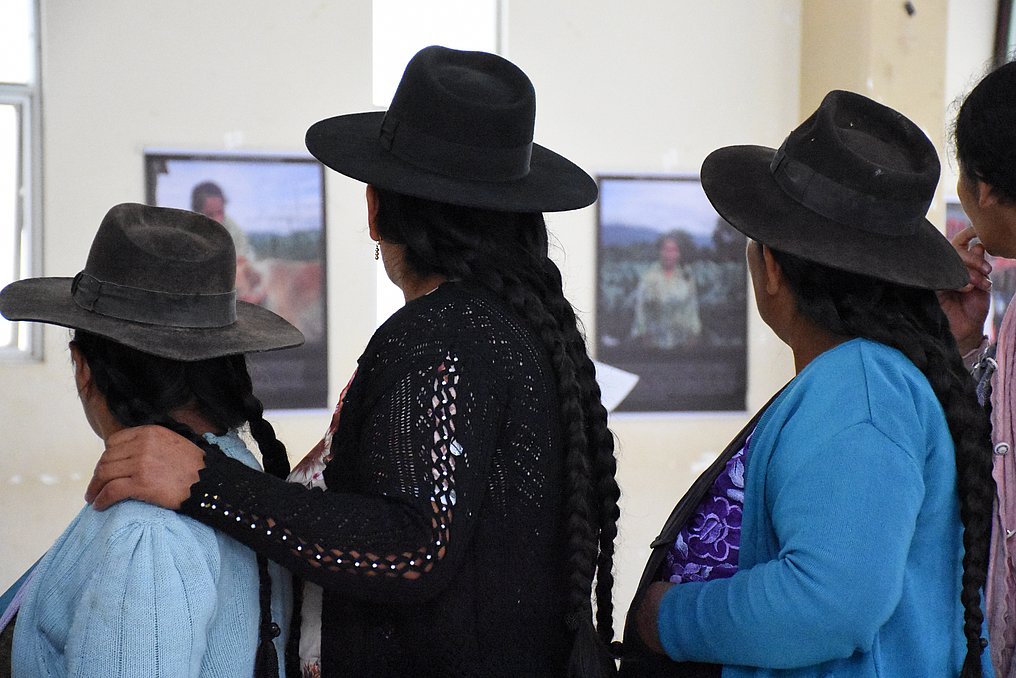
Svenja Jandrasits works as a professional in the Civil Peace Service program for the “Centro Juana Azurduy”, a partner organization of the World Peace Service in southern Bolivia.
As part of the project “Women and young people as protagonists of a culture of peace in southern Bolivia”, the economic dependence of women in Chuquisaca was examined. The project used the participatory research method known as PhotoVoice, which enables women to make their experiences and perspectives visible through photography. The resulting images document their struggle for economic independence and were presented in dialogue events with representatives of social organizations and political actors.
The second-place photograph was taken during one of these exhibitions. It shows members of the women’s organization Centralía Provincial de Mujeres Bartolina Sisa observing the portrait of a woman. The photographer describes the scene as an expression of solidarity and attentive listening: “I’m here, I’m listening, and I’m genuinely interested in the lives of other women.”
The jury praised the photograph’s precise composition. Its unconventional perspective, they said, powerfully communicates the message “Discovering other realities together to bring about change”. The image’s strength lies in the way its close observation of an everyday moment prompts reflections on how we live together — reflections that reach well beyond the merely factual.
Katja Dombrowski, Bolivia 2024
3rd Place: "Claiming the Image"
Katja Dombrowski was a CPS professional for the World Peace Service in the project: “Conflict transformation and strengthening the culture of peace in southern Bolivia.”
The photograph features 15-year-old María José — a pupil and participant in a PhotoVoice project run by partner organization Acción Cultural Loyola (ACLO). The aim of the project is to enable participants to depict their own lived realities through texts and photographs.
The photographer writes: “In this self-portrait, María José has complete control over her image. She stages herself exactly as she wishes to be seen. I captured this moment without influencing her pose or her gaze.”
The jury, too, were deeply impressed: “This photograph demanded a closer look — an invitation to see beyond the surface. At first glance, one might dismiss it as just another selfie, but there is so much more behind it: themes of contemporary life such as loneliness, belonging, the search for acceptance, love and trust. The girl deliberately directs the camera at herself — a bold and powerful gesture through which she claims (or reclaims) her visibility and her place in society. The photographer remains unobtrusive in the background, giving María José the space to express herself freely. The result is a quiet yet deeply moving image that prompts reflection without being intrusive.”
We congratulate our three winners and thank everyone who took part in the competition!
Jury
Wara Vargas
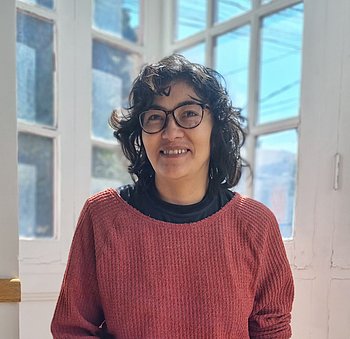
Wara Vargas Lara is a Bolivian documentary photographer. Her work is aimed at strengthening the cultural identity of indigenous peoples in her country, as well as highlighting the ancient knowledge of Bolivian women.
Since 2006, Wara Vargas' work has been recognized and exhibited in countries such as Germany, the United States, Colombia, Brazil, Uruguay, Mexico, Italy, and Spain.
In 2019, Wara received the National Geographic scholarship, with support to tell story of traditional midwives from the Kallawaya, culture of Bolivia, and since then she has been part of the community of Latin explorers.
She is part of the community of photographers at Fairpicture, an organization that is committed to ethical storytelling.
Wolfgang Zurborn
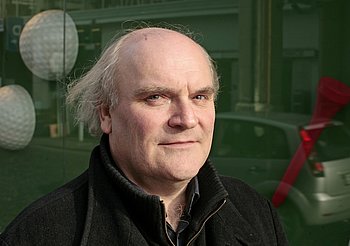
Wolfgang Zurborn’s photographs take us into a totally idiosyncratic and bizarre world in which scenes and objects of everyday life seem to have gone awry. His curiosity about experience and search for communication drive him to find images with radical cropping, surprising compositions and unusual perspectives that tear us away from the routine consumption of the neat and tidy media world. (from the publication Catch, published by Kettler, 2015)
Zurborn studied at the Bavarian State School of Photography in Munich and at the Dortmund University of Applied Sciences and Arts. He received the Otto Steinert Prize from the DGPh (German Society for Photography) in 1985 and the German Photo Book Prize in 2008. In 2009, the House of Photography at the Deichtorhallen Hamburg presented an overview of his work, which has also been shown in solo exhibitions around the world.
He has run the Lichtblick Gallery in Cologne together withTina Schelhorn for the past 39 years, and in 2010 he founded the Lichtblick School. Zurborn runs workshops and photography seminars all over the world and has been on the board of the German Photographic Academy since 1998.
thabo thindi
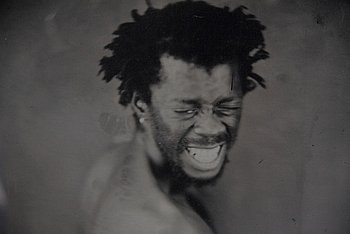
thabo thindi is a South African-born photographer, filmmaker, actor and performance artist. Through his art, he explores anti-black racism and other forms of discrimination, advocating for the dissolution of prevailing white power structures. As part of the 48 Hour Film Project Berlin, thindi was awarded the prize for Best Cinematography in 2012. In 2013, he was involved in the exhibition BLACK MIRRORS - MEMORY.BODY.IDENTITY as part of Black Lux - a festival of Black perspectives in Berlin - and as director and producer of the video exhibition Exile Faces at Haus Kulturen der Welt. thabo thindi lives in Berlin and South Africa.


